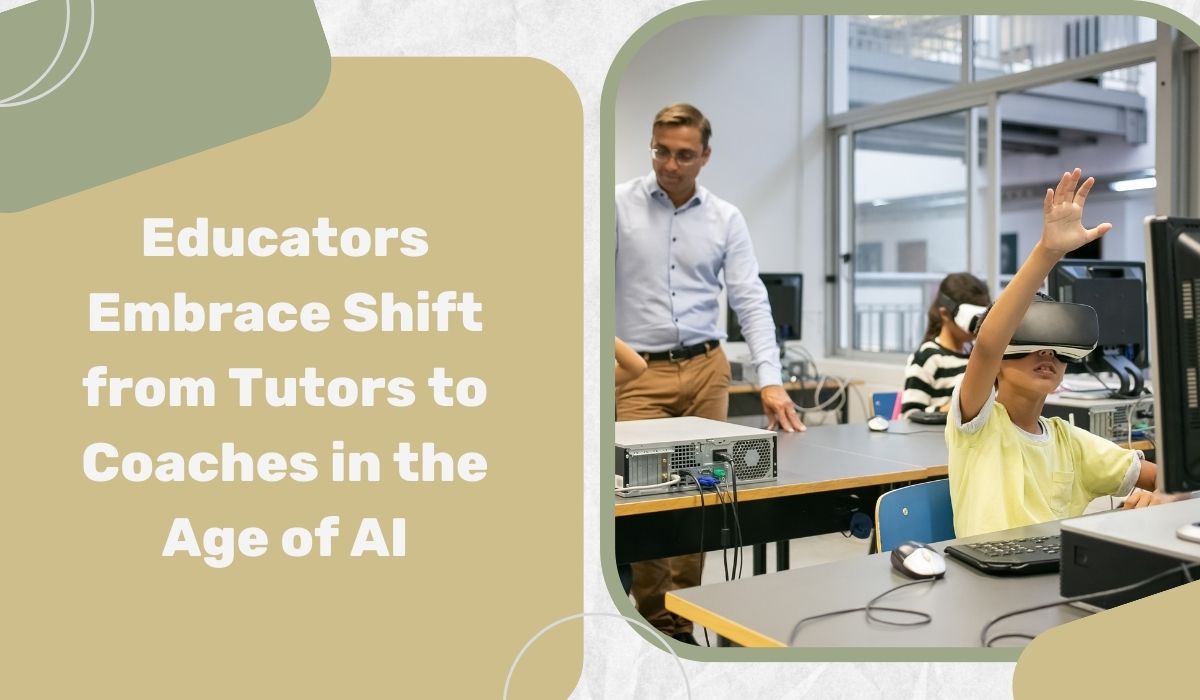
In the ever-changing realm of education, the relationship between educators and students mirrors the dynamic connection between a tennis coach and player. Beyond the transfer of skills and knowledge, this bond encompasses mentorship, motivation, and character development. However, the surge of artificial intelligence (AI) has placed educators at a crucial juncture, prompting a reevaluation of their roles in light of technological advancements. The influence of a teacher or coach extends beyond information delivery. Similar to a tennis coach keenly observing each court move, a teacher identifies a student's challenges and provides essential support. It is the human touch that sets apart exceptional educators, offering motivation, encouragement, and an intuitive ability to discern the right moments to push students further. With the rise of generative AI adept at handling intricate tasks like solving mathematical problems or crafting essays, a pertinent question arises: where does the traditional teacher fit into this technological landscape.
Undeniably, generative AI exhibits remarkable potential, yet it cannot replace the multifaceted role of a teacher in the real world. AI lacks emotional intelligence, adaptability, and empathy – vital elements for effective teaching. The imperative shift from tutor to coach necessitates educators to leverage their distinctive human qualities, beyond the reach of AI emulation. Drawing from over a decade of experience, instructing a student cohort exceeding 10,000, it becomes evident that a teacher surpasses the role of an information provider. Acting as an inspiration and role model, a teacher instills creativity and critical thinking – aspects that elude AI's grasp. Human educators tailor their approaches to accommodate diverse learning styles, fostering a supportive and empathetic environment conducive to optimal knowledge absorption.
Teachers actively monitor and adapt to student performances, identifying challenges, offering encouragement, and adjusting teaching methods accordingly. Beyond academics, educators provide emotional support, enhancing morale – a dimension where AI falls short. The human touch imparts values, ethics, and character, contributing to the holistic development of individuals beyond the conventional curriculum. While AI may not supplant teachers, it serves as a valuable ally. AI streamlines administrative tasks, such as grading, ensuring accuracy and efficiency. Through AI-powered analytics, teachers gain insights into student performance, enabling them to tailor their approaches to address individual learning gaps. Generative AI aids in creating personalized, engaging study materials, elevating the overall learning experience.
In the ever-evolving landscape of AI-powered education, teachers must adapt and collaborate. The future of education lies in the synergy between dedicated educators and the opportunities presented by AI, ensuring students benefit from the best of both worlds. As educators embrace the transition from tutors to coaches, they harness the power of AI as a tool to refine their teaching methods, ultimately preparing students for success in an increasingly technologically driven world.